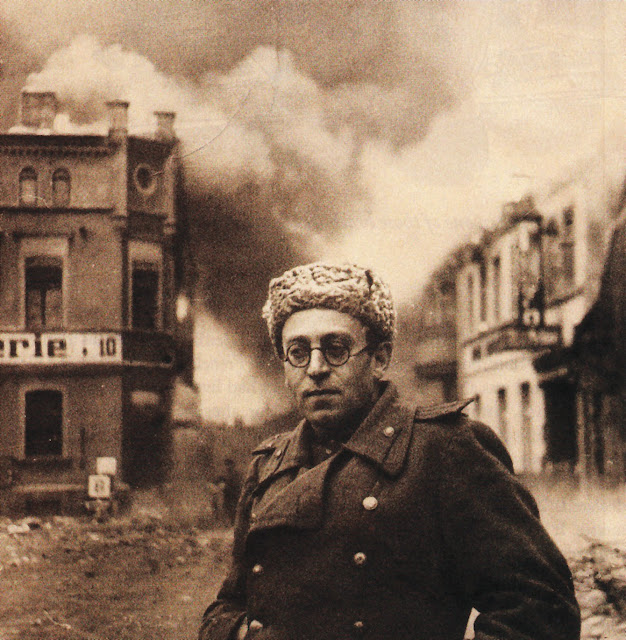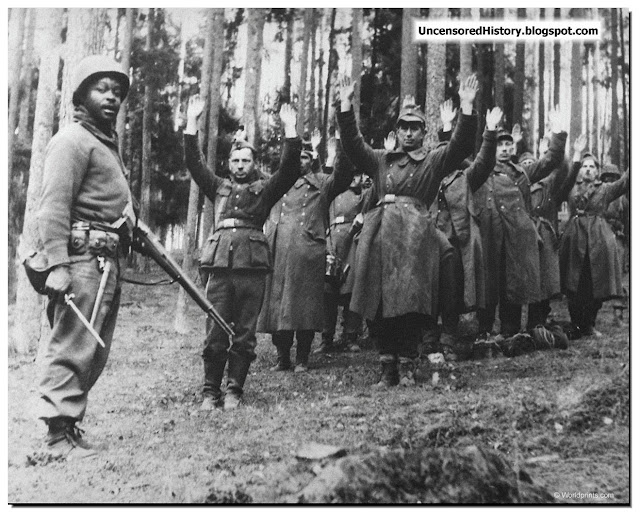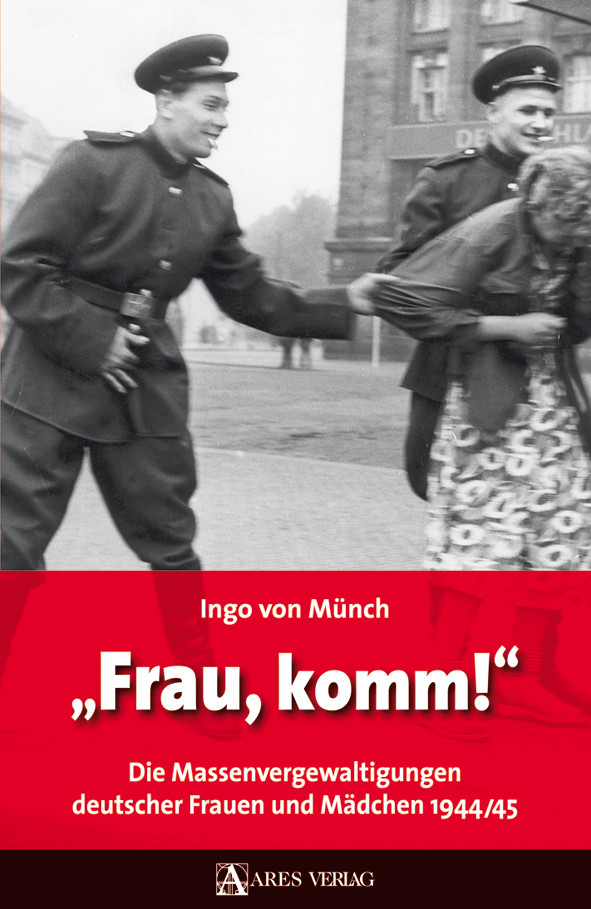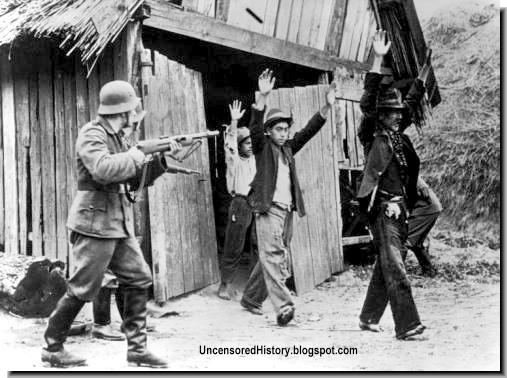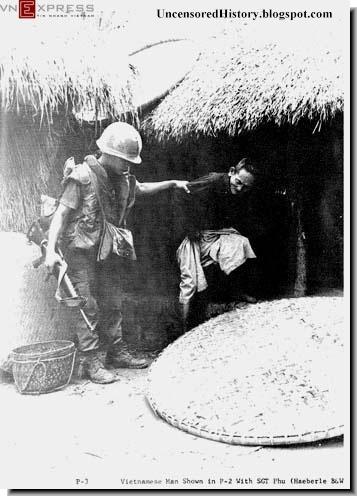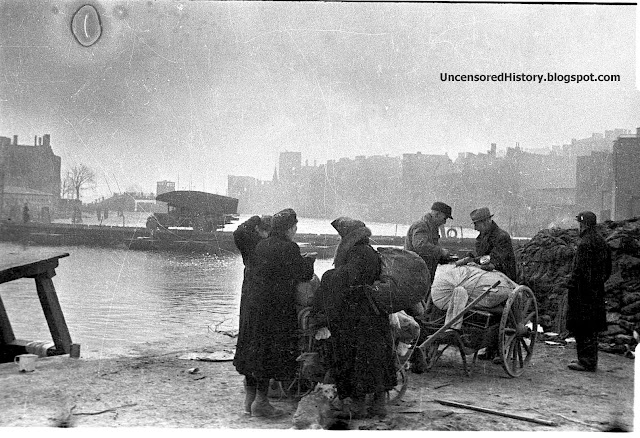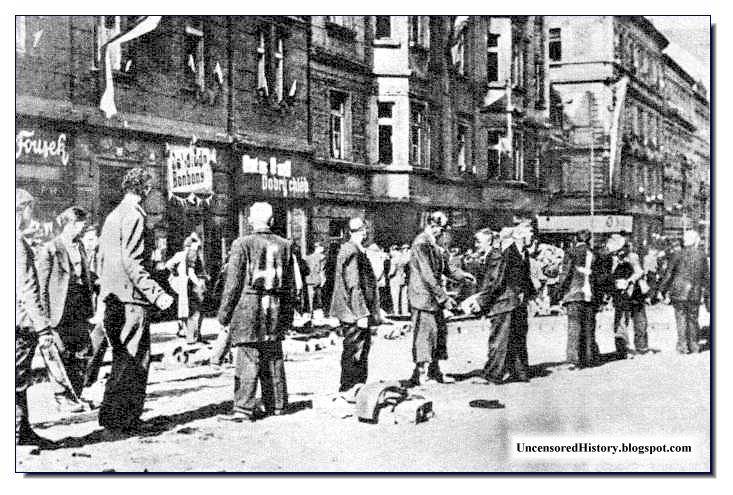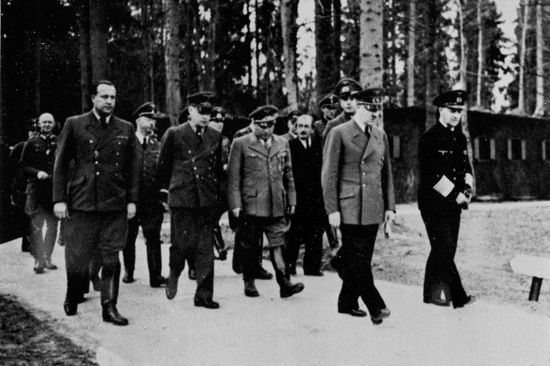Vasily Grossman was a Russian war reporter with a difference. Not the usual kowtowing, mill-of-the-run, psychophantic product of the Stalinist system. He was sensitive and called a spade a spade. If he praised the bravery of the Russian soldiers he was brutally frank in describing the nauseating mass rape of German women in the closing stages of WW2.
His book "A Writer At War" is a must-read. The Eastern front comes alive.
For four years Grossman saw everything, from Stalingrad to Berlin, and he set it all down with the sympathy and dispassion of the great novelist that he was—including the fate of his mother, shot by the Germans in the first months of the invasion, which he only learned when his hometown was liberated by the Red Army; and the radical truth of Treblinka, which was razed just before he got there, but which he recreated unbearably and unforgettably by interviewing every survivor and guard he could find.
http://www.newyorker.com/online/blogs/books/2012/05/what-were-reading-vasily-grossman-eric-kandel-longformorg-and-more.html
-----
A joke about how to catch a German. One simply needs to tie a goose by the leg and a German would come out for it. Real life: Red Army soldiers have tied chickens by the leg and let them out into a clearing in the woods, and hid in the bushes. And Germans really did appear when they heard the chickens clucking. They fell right into the trap
-----
German trenches, strong points, officers’ andsoldiers’ bunkers. The enemy has been here.There are French wines and brandy; Greek olives;yellow, carelessly squeezed lemons from their ‘ally’, slavishly-obedient Italy; a jar of jam with a Polish label; a big oval tin of fish preserve –Norway’s tribute; a bucket of honey from Czechoslovakia. And fragments of a Soviet shell are lying amid this fascist feast.
Soldiers’ bunkers are a different sight: here onewon’t see empty chocolate boxes and unfinished sardines. There are only tins of pressed peas and chunks of bread as heavy as cast iron. Weighing in their palms these loaves that are similar to asphalt in both colour and density, Red Army soldiers grin and say: ‘Well, brother, that’s real bread!
---------
Orel, Orel once again. There are aircraft over it.Trucks. People carry children in their arms.Children sitting on bundles. [There is a constant]rattling noise during the night: the city is on the move. We are in a hotel once again. It is a normal provincial hotel, but now it seems an extremely nice one after all the travelling, because it is such an ordinary, such a peaceful one.
There is a school map of Europe. We go to look at it. We are terrified at how far we have retreated. I am approached in the corridor by a photo-journalist called Redkin whom I’d met at front headquarters. He looks alarmed. ‘The Germans are rushing straight for Orel. There are hundreds of tanks. I had a narrow escape under fire. We must leave immediately, otherwise they’llcatch us here.’ And he tells us how he was sitting in a very quiet rear headquarters having dinner,when suddenly they heard a noise. They looked out the window and saw an NKVD man running past. He was covered in flour. It turned out that he had been driving along a few kilometres away,completely unaware of how close the Germans were, when suddenly a tank turned its turret and fired, hitting the truck in which he was carrying sacks of flour. ‘Tanks are everywhere!’ Redkin got into a car and rushed to Orel. German tanks were advancing along the same road, and there was no resistance. Redkin tells us this news in a frightened, hissing whisper.
--------------------
BRYANSK
Everyone keeps looking up into the sky, but not because they are waiting for the Messiah. They are watching out for German bombers. Suddenly there are shouts: ‘Here they are! They’re coming,they are coming straight for us!’ Dozens of aerial boats are gliding in the sky,slowly and smoothly, in triangular ranks. They are moving towards us. Dozens, hundreds of people climb over the sides of trucks, jump out of cabins,run towards the forest. Everyone is infected with panic, the running crowd is growing bigger every minute. And then everyone hears the shrill voice of a woman: ‘Cowards, cowards, they are just cranes flying over!’ Confusion.
-----------
Soon after reaching the Orel–Tula road, Grossman spotted a sign to Yasnaya Polyana, the Tolstoy estate, some twenty kilometres south of Tula. He persuaded his companions that they should visit it. As things turned out, the next visitor after them would be General Guderian, who decided to turn the writer’s home into his headquarters for the assault on Moscow.
-------------
The editor [Ortenberg] came to meet us. He was up in arms. ‘Why have you left the headquarters of the Bryansk Front?’‘We were ordered to leave, and we left, after all the other correspondents did.’‘Why didn’t you write anything about the heroic defence of Orel?’‘ Because there was no defence.
------------
When they approach a wood, Germans start firing like madmen and then rush through it at full speed.Germans opening fire. In the evenings they would go to the edge of a wood and open fire with sub-machine guns. Captain Baklan approached to a distance of fifty metres. He lay there watching.They spotted him. Their behaviour reminded him of madmen. They started running about with terrible shouting. Dozens of rockets soared into the air, artillery started firing without aim, machine guns started rattling away, sub-machine guns too.They were firing all over the place, and Baklan lay there watching the Germans in astonishment
------------
A VILLAGE NEAR MOSCOW RE-CAPTURED BY THE RUSSIANS......
Germans were camping in this izba just six hours ago. Their papers, bags, helmets are still on the table. The izbas that they had set on fire are still smouldering. Their bodies smashed by Soviet steel are lying around in the snow. And women,feeling that the nightmare of the last days is over at last, suddenly exclaim through sobs: ‘You are our dear ones, you are back at last!’‘
Well, this is how it was [one of the women recounted]. The Germans came. They knocked at the door, crowded into the house, and stood by the stove like sick dogs, their teeth chattering, shaking, putting their hands right into the stove,and their hands were red like raw meat. “Light the stove, light it!” they shouted as their teeth chattered. Well, as soon as they got warmer, they began to scratch themselves. It was awful to watch, and funny. Like dogs, scratching themselves with their paws. Lice had started moving again on their bodies because of the warmth.
--------------
FATE OF RUSSIAN GIRLS....
The retaking of Zaliman and other villages made Grossman think even more about life for those under German occupation. Rumours from the other sides of the lines concerned everyone.Girls in the occupied villages put on rags and rub ash on their faces.This was to avoid the attention of German soldiers.
German women took the same precautions in 1945 in the hope of escaping rape at the hands of the Red Army. Yet Grossman, like many, was sometimes misled into ascribing the worst of motives to those under enemy occupation. Six beautiful girls from Zaliman went away together with Germans.
This could well have been malicious gossip. The most attractive girls were often seized for service in Wehrmacht brothels, a fate far worse even than gang rape, since it was on a permanent basis and the young women had to pretend to enjoy it or face severe punishment.
------------
AT A RUSSIAN ARMY HEADQUARTERS...
The izba is crowded with dozens of people.There’s confusion, the headquarters is in the process of setting itself up. A beautiful girl is therein an overcoat which is too big for her, a big ushanka [fur hat] which keeps falling over her eyes, and huge valenki [felt boots], but one can tell there is a sweet, slim girl underneath all this ugly grey stuff. She is standing there looking lost,not knowing where she can sit down. She is holding a red handbag in her hands. This lady’s handbag, which has seen better days, looks stunningly sad in these grey military surroundings. A soldier slaps her on the back jokingly, but with full force. Suddenly she begins to cry. ‘Forgive me, Lidochka,’ the soldier says to her. ‘I’m a miner, I’ve got heavy hands.’
-------
Grossman was so deeply affected by the genuine spirit of sacrifice among ordinary soldiers and front-line officers that he became quite emotional on the subject.
"At war, a Russian man puts on a white shirt. He may live in sin, but he dies like a saint. At the front[there is] a purity of thought and soul, a kind of monastic austerity.The rear [the civilian part of the country] lives by different laws and it would never be able to merge morally with the front. Its law is life, and the struggle for survival. We Russians don’t know how to live like saints, we only know how to die like saints. The front [represents] the holiness of Russian death, the rear is the sin of Russian life. At the front, there is patience and resignation,submission to unthinkable hardships. This is the patience of a strong people. This is the patience of a great army. The greatness of the Russian soul is incredible."
-----
THE RIVER VOLGA AT STALINGRAD
A terrifying crossing. Fear. The ferry is full of vehicles, carts, hundreds of people crowded together, and it gets stuck. A Ju-88 drops a bomb from high above. A huge spout of water, upright,bluish-white in colour. The feeling of fear. Thereisn’t a single machine gun at the crossing, not a single little anti-aircraft gun. The quiet, clear Volga is terrifying like a scaffold.The city of Stalingrad, the last days of August,beginning of September, after the fire. Crossing the river to Stalingrad. At the start, for courage, we drink a huge amount of apple wine at a collective farm on the left bank.Messers are howling over the Volga, there is haze and smoke over it, smoke canisters are burned constantly to camouflage the crossing.
-----------
STALINGRAD
